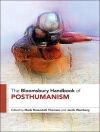Since the publication of The Savage Detectives in 2007, the work of Roberto Bolaño (1953–2003) has achieved an acclaim rarely enjoyed by literature in translation. Chris Andrews, a leading translator of Bolaño’s work into English, explores the singular achievements of the author’s oeuvre, engaging with its distinct style and key thematic concerns, incorporating his novels and stories into the larger history of Latin American and global literary fiction.
Andrews provides new readings and interpretations of Bolaño’s novels, including 2666, The Savage Detectives, and By Night in Chile, while at the same time examining the ideas and narrative strategies that unify his work. He begins with a consideration of the reception of Bolaño’s fiction in English translation, examining the reasons behind its popularity. Subsequent chapters explore aspects of Bolaño’s fictional universe and the political, ethical, and aesthetic values that shape it. Bolaño emerges as the inventor of a prodigiously effective ‘fiction-making system, ‘ a subtle handler of suspense, a chronicler of aimlessness, a celebrator of courage, an anatomist of evil, and a proponent of youthful openness. Written in a clear and engaging style, Roberto Bolano’s Fiction offers an invaluable understanding of one of the most important authors of the last thirty years.
Inhoudsopgave
Acknowledgments
Introduction
List of Abbreviations
Note on Translations
1. The Anomalous Case of Roberto Bolaño
2. Bolaño’s Fiction-Making System
3. Something Is Going to Happen: Narrative Tension
4. Aimlessness
5. Duels and Brawls: Borges and Bolaño
6. Evil Agencies
7. A Sense of What Matters
Appendix: Victims in ‘The Part About the Crimes’ (2666) and Huesos en el desierto
Notes
Bibliography
Index
Over de auteur
Chris Andrews teaches at Western Sydney University, where he is a member of the Writing and Society Research Center. He has translated ten books by Roberto Bolaño. His book
Lime Green Chair won the 2011 Anthony Hecht Poetry Prize.












